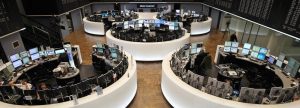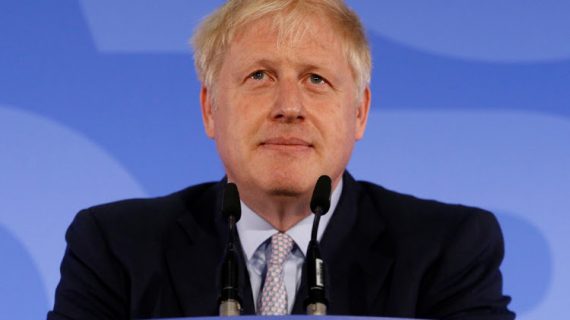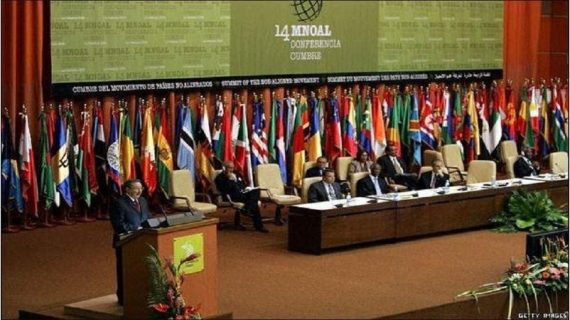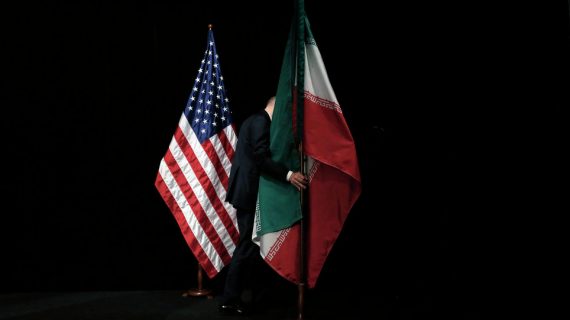World Shares Sink on US’ Latest Trade Salvo
The escalating tensions between US and China have sent tremors through global markets in recent days, with tech stocks across developing economies bearing the brunt of the losses
Reported by HPMM Group according to FINANCIAL TRIBUNE ;World stock markets slid Friday after Beijing vowed to fight back against the Trump administration’s latest threats of yet more tariffs on Chinese imports, renewing investor fears of a brewing trade battle between the world’s two biggest economies.
European shares fell in early trading. France’s CAC 40 lost 0.6% to 5,246.95 and Germany’s DAX shed 0.8% to 12,207.37. Britain’s FTSE 100 slipped 0.2% to 7,182.98. Wall Street was poised to open sharply lower. Dow futures skidded 0.9% to 24,255.00 and broader S&P 500 futures sank 0.8% to 2,641. The Nasdaq composite added 0.5% to 7,076.55, AP reported.
In Asia, Japan’s benchmark Nikkei 225 index dipped 0.4% to close at 21,567.52, while South Korea’s Kospi slipped 0.3% to 2,429.58. Australia’s S&P/ASX 200 was flat at 5,788.70, but Hong Kong’s Hang Seng rose 1.1% to 29,844.94 after trading resumed following a holiday as investors caught up with the previous day’s global gains. Singapore’s share index rose, while those in Indonesia, the Philippines and India fell. Mainland Chinese markets remained closed for a holiday.
The escalating tensions have sent tremors through global markets in recent days, with tech stocks across developing economies bearing the brunt of the losses.
MSCI’s emerging market IT index, featuring many Asia-based exporters, fell 0.2% on the day and was on track for a more than 2% loss since Monday in its third week in the red. The wider emerging market benchmark fell 0.2% and looked poised for a weekly loss of 0.6%.
“It’s concerning for the global economy and we do see the stock markets taking a bit of a beating,” said Jakob Christensen, head of EM research at Danske Bank.
Beyond the trade turmoil, financial markets are focused on Friday’s US non-farm payrolls report, which could determine the pace of future Federal Reserve interest rate rises and the dollar’s direction.
The US March employment report is expected to show non-farm payroll growth of 193,000 jobs versus 313,000 the prior month, according to the latest Thomson Reuters poll of economists.
Average hourly earnings are expected to have risen 0.2% last month after edging up 0.1% in February. The gain would lift the annual increase in average hourly earnings to 2.7% from 2.6% in February.
Currency Market
The dollar was little changed at 107.385 yen after earlier falling to 106.990 on Trump’s latest tariff proposal. The dollar had risen to a one-month peak of 107.490 yen overnight, bolstered by Wall Street’s bounce on Thursday when the United States appeared to signal a willingness to resolve the trade dispute.
The euro was steady at $1.224. The dollar index against a basket of six major currencies was nearly unchanged at 90.453. The index has risen 0.4% this week.
Treasury debt prices gained and yields declined as investors sought the safety of government bonds. The 10-year treasury note yield fell 1.5 basis points to 2.817%, pulling back from Thursday’s nine-day high of 2.838%.
As caution zapped risk appetite, emerging market currencies also suffered, with Turkey’s lira—one of the worst performing emerging currencies this year—dipping to fresh record lows against the dollar and the euro, CNBC said.
The yield on Turkey’s domestic benchmark 10-year sovereign bond jumped to a fresh record high of above 13% while the cost of insuring exposure to Ankara’s hard currency debt rose to its highest in eight days.
Currencies elsewhere fared little better. South Africa’s rand chalked up some of the biggest losses, weakening nearly 1% on the day and on track for a 2% loss on the week.
Trade Tiff
US-China trade tensions stepped up another notch after President Donald Trump instructed the US trade representative to consider slapping an extra $100 billion in tariffs on Chinese goods. China responded by indicating it wouldn’t back down, saying it would fight back “at any cost”, according to a statement from the commerce ministry.
The surprise move was a further escalation of the deepening dispute between the world’s two biggest economies, which just days earlier announced plans for $50 billion in import duties on each other’s goods. The earlier tariff threats roiled financial markets but they had rebounded Thursday on investor hopes the US and China indicated would find a diplomatic solution.







